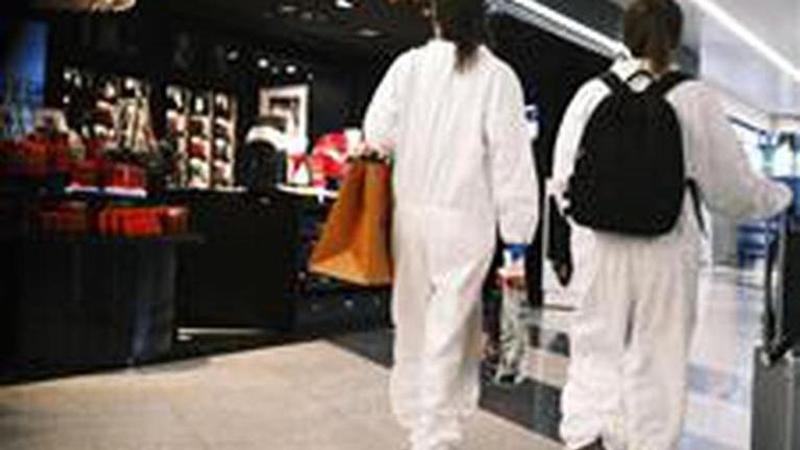Published 10:23 IST, May 14th 2020
Dubai Airports CEO on challenge facing airlines
The chief executive officer of the world's busiest airport for international travel wants to get the globe flying again, but even he acknowledges everything remains up in the air amid the coronavirus pandemic.

The chief executive officer of the world's busiest airport for international travel wants to get the globe flying again, but even he acknowledges everything remains up in the air amid the coronavirus pandemic.
Paul Griffiths oversees what now is a much-quieter Dubai International Airport, home to the long-haul carrier Emirates.
The millions that once poured through the concourses of this airport crucial to East-West travel no longer are flying, as countries around the world have instituted lockdowns and travel bans to fight the virus and the COVID-19 illness it causes.
Though government-owned Emirates plans to restart some flights next week, Griffiths told The Associated Press in an interview Wednesday that the airport has yet to find a workable coronavirus or antibody test to administer on massive scale for its passengers.
"I think the thing is there are a lot of people that are offering conjecture, whether it's 18 months or two years or less or more," Griffiths said.
"But the problem is it's all conjecture. The honest answer is no one really knows."
The airport known as DXB saw 86.4 million passengers in 2019, 6 million more than second-place Heathrow Airport in London.
That's down 3% from 2018, which saw 89.1 million passengers at the massive airport.
But air travel this year has been disrupted by the virus.
In the first quarter, Dubai International Airport saw passenger numbers drop by nearly a fifth to 17.8 million compared to last year.
However, cargo and repatriation flights have been flying.
Beginning May 21, Emirates plans to operate flights to nine cities, including Chicago; Frankfurt; Germany; London; Madrid; Milan; Paris; Toronto; Sydney and Melbourne.
Already, attendants on Emirates flights wear gloves, masks and other protective gear.
In the airport, customers and staff alike wear masks and disposable gloves. Thermal heat scanners look over passengers and they have experimented with both coronavirus and antibody tests, Griffiths said.
However, the airport has no immediate strategy to implement that testing on all passengers, like Iceland plans at its airport in Reykjavík.
That leaves open the possibility of an asymptotic coronavirus carrier making it onto a flight.
"I believe we're doing everything we can to make sure that we are maintaining the integrity of the health and security, and safety of our customers and staff," Griffiths said.
"As new methods become available, we will, of course, trial and adopt them if they're effective and scalable."
In Dubai and the wider United Arab Emirates, the coronavirus has taken a hard toll.
Emirati officials say they've detected some 20,000 cases of the virus, with over 203 deaths and 6,000 recoveries.
Particularly hard-hit is the Emirates' vast population of foreign labourers.
Ramping up activity at both Emirates and Dubai International Airport is crucial for Dubai, which created itself as a vital hub for the free movement of trade, people and money worldwide — all things that have been disrupted by the pandemic.
The airport-based firm Dubai Duty Free, whose vast shelves of alcohol, electronics, perfumes and toys greet bleary-eyed travellers from the world over, saw sales of just-over two billion US dollars last year alone.
Given the pandemic's uneven effects worldwide, bilateral deals may need to be struck country to country, further complicating global travel but slowing the virus' spread.
But Griffiths believes the world eventually will return to the airport, that the pandemic is another disruption in a long line of major events like the 1991 Gulf War, the September 11 terror attacks and SARS outbreak.
"I feel we're all standing on the start line of a sprint race and we're looking at the starter and waiting for that pistol to be fired," Griffiths said.
"As soon as that finger tightens around the trigger, we'll be ready to spring into action."
(Representative Image)
Updated 10:23 IST, May 14th 2020




